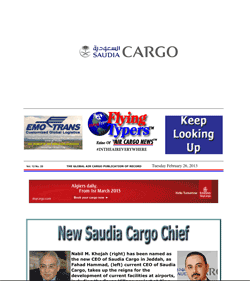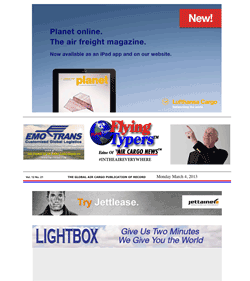|
 |
IBSS
is stocked wall to wall with decision-makers from
all parts of the food chain.
There are manufacturers,
retailers, wholesalers, shipping experts, and container
manufacturers everywhere at IBSS.
But in addition
to meeting up with guys in air cargo perishables from
Scotland to the Cone of Chile, IBSS exhibitors offer
up samples of some of the best dining imaginable.
What a scene!
Twenty-ounce draft
in one hand, skewered shrimp in the other, Zantac
within reach, then back to the airplane, ready to
take on the world.
“We’ve
had very positive feedback from every group involved
in the show,” said Liz Plizga, Show Director
for Diversified Business Communications, the company
that produces the International Boston Seafood Show
“The seafood
community recognizes that IBSS consistently provides
the most progressive and comprehensive forum for knowledge-exchange
and networking.”
“The Boston
Seafood Show is not only a show with a great history,
but is one of the most effective marketing tools for
reaching the seafood business community,” she
said.
“This event
provides an opportunity to meet with a great deal
of potential customers in a very short period of time,”
said Soren Kaplan, Wall Street Journal best-selling
author of the book Leapfrogging and 2013 IBSS keynote
speaker.
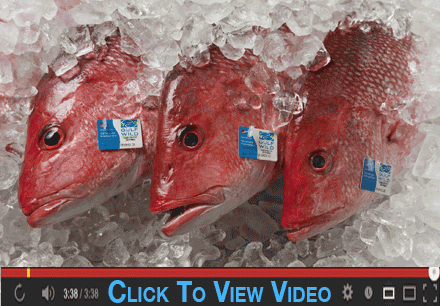 “The
International Boston Seafood Show is always a great
forum for us to generate leads and showcase our product,
and we are looking forward to another great event,”
said Jan Krems of KLM Cargo (see next story).
“The
International Boston Seafood Show is always a great
forum for us to generate leads and showcase our product,
and we are looking forward to another great event,”
said Jan Krems of KLM Cargo (see next story).
A much anticpated
part of the IBSS is The New Product Conference, providing
seafood buyers a look at the latest value-added products,
new species, packaging and services.
A panel of industry
buyers screens products based on uniqueness and appropriateness
to the market and chooses several winners from various
categories for the Annual Seafood Excellence Awards
(SEA).
Another nice tradition
at IBSS comes at the close of the show, when hundreds
of exhibiting companies donate more than 20,000 pounds
of fresh seafood leftover from the show, providing
many thousands of meals for hungry men, women, and
children throughout Eastern Massachusetts via the
Greater Boston Food Bank.
The National Fisheries
Institute is the official sponsor of the International
Boston Seafood Show.
www.bostonseafood.com
|
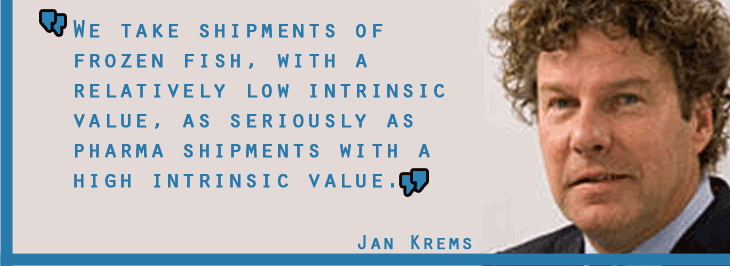 |

“Shipping frozen
and fresh fish, scallops, and live lobsters from our
U.S. Gateways in the Northeast, as well as from Eastern
Canada to Europe, is part of our regular business
year-round, with yearly peaks around the holidays.
“Further, we have
regular flows of seafood from Europe to North America
as well as to Asia, and from South America to Europe,
especially now that Chilean Salmon is fit for export
again.”

“For certain markets,
including the U.S. Northeast and Norway, the transportation
of Seafood is very important. However, we recognize
that, like for other perishables, flows are subject
to many factors, including weather, disease, rate
of exchange, and of course, the demand at destination.
“We recognize
that we should focus on a product diversification
on board our flights, so that we do not overly rely
on one specific commodity.
“A good example
of the importance of preparation and diversification
can be illustrated by the following:
“Our Canadian
Team had planned to ship a large volume of salmon
for one of our key customers in Vancouver last summer.
“However, their
shipper dealt with an unexpected disease in the pens
of their salmon in British Columbia, which brought
to a halt the export of their salmon to Europe.
“Although we had
anticipated shipping large volumes of the salmon,
the failure of this project to materialize hurt our
business plan in Western Canada.
“Luckily, our
local Team was quick to recognize that other business
had to be sought after so that our flights still performed
successfully.”

“In general, we
work with specialized freight forwarders that are
familiar with the required paperwork for export and
import, including Inspections along the way.
“We have special
products and handling codes in place to ensure proper
handling of the goods at the correct temperature.
“In addition,
we insist on a pre-alert system that allows our Competence
Centers at our hubs in Paris and Amsterdam to prepare
for veterinary inspections for arrival or transit.
“Also, we train
and inform our sales and customer service staff of
new developments on an as-needed basis.
“We take shipments
of frozen fish, with a relatively low intrinsic value,
as seriously as pharma shipments with a high intrinsic
value.
“With the support
of a dedicated global ‘Variation Fresh’
Team, led by Pieter Fopma, Director, Fresh, we keep
the communication lines and calls for action efficient.”

“With our partners
Delta Airlines and Alitalia, we feel that it is very
important to be present and talk to our customers
who are all gathered under one roof, face to face.
“Also, the IBSS
Exhibition allows us to get to know and learn more
about the requirements of shippers and consignees
alike.
“In fact, in the
seafood shipping world, many decisions are made by
the consignees. Having recognized that, our Variation
Fresh Team has assigned Business Development Managers
for Export, as well as for Import, and they work closely
to develop new business and to maintain a good relationship
with our existing customers.
“With that in
mind, examples of ‘on the spot bookings’
are few, but our success lies in the enhancement of
existing relationships and the development of long
term partnerships.
“For the same
reasons, we will attend other fresh and seafood conventions,
including the European Seafood Exhibition in Brussels
in April as well.
“However, we will
not exhibit there.”

“The design of
our stand is the same as what we displayed in the
two previous years, representing our three familiar
brands—Air France, KLM, and Martinair Cargo—forming
one company named Air France-KLM-Martinair Cargo.
“With our unique
combination of airlines and extensive global network,
we offer service to more than 350 destinations in
170 countries.
“We are due for
a new design because our company logo has slightly
changed during the past year, and we proudly represent
a company that is keen on development and changes
for improvement and success.
“We will definitely
consider a new design for the future.
“Regardless, we
all look forward to a successful and enjoyable show
once again!”
Geoffrey/Flossie
|
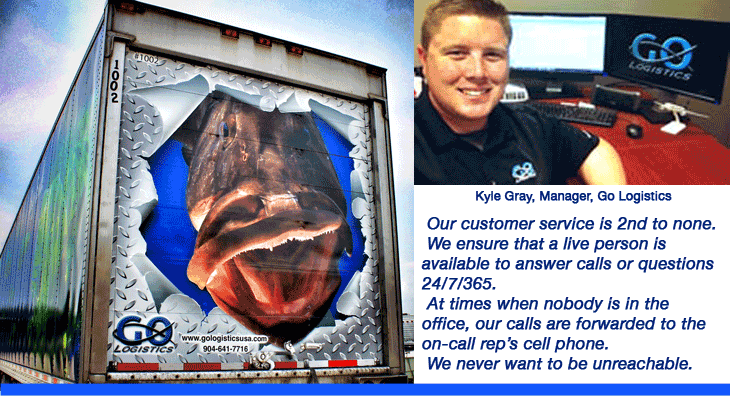 |
“Our emphasis
is on timely communication, reliability, customer service,
and efficiency through technology utilization.
“With communication,
we can proactively avoid so many issues before they
actually become problems.
“In the rare case
where we are running behind our normal itinerary, we
proactively notify all customers along the route to
let them know as early as possible to allow for proper
planning and adjustments.
“We also provide
delivery confirmations and expected arrival times so
that our customers are not left wondering if their product
arrived to the destination or guessing what time the
truck will arrive.
“We aim to be on-time
95 percent of the time.
“Our driver’s
pay is tied into many incentives, one of which is on-time
deliveries.
“We know that customers
incur excessive cost when a truck is late so we view
our customers as partners, knowing that we cannot be
successful if they are not also successful.”

“Our customer service
is 2nd to none.
“We ensure that
a live person is available to answer calls or questions
24/7/365.
“At times when nobody
is in the office, our calls are forwarded to the on-call
rep’s cell phone.
“We never want to
be unreachable.
“We also provide
same-day billing so that the accounting offices of our
customers are never waiting on us.
“Finally, our efficiency
through technology is the area that I am most excited
about!
“We have outfitted
each tractor in our fleet with real-time GPS and speed
tracking.
“At any given point,
I can see where our drivers are and how fast they are
driving.
“We also invested
in on-board tablet technology that will eliminate paper
Bills of Lading to customers that elect this option.
Customers will sign our tablet electronically and that
will automatically generate an email with the BOL along
with triggering the invoice process.
“The customer will
receive the BOL complete with their receiver’s
signature.
“Go Logistics will
also be able to provide suppliers that have prepaid
freight a signed BOL for their records.”

“We are a new company
that started in April 2012.
“Go Logistics started
initially with one truck running from Miami to Jacksonville,
FL.
“Within 5 months,
we were up to 4 tractor/trailers running out of Miami
as far north as Boston and as far west as central TX.
“Today 98 percent
of the product we carry is fresh or frozen seafood.
“We are at the point
at which we need to add at least one more tractor/trailer
to our fleet to be able to keep up with demand.
“Go has been very
encouraged by our customer’s reception and instant
loyalty to our company.
“In the future,
we hope to increase our service area as well as increase
the frequency of days that we deliver.”

“We use Go Fish
Cargo as our freight consolidator in Miami.
“They make pick-ups
at all of the Miami suppliers in addition to the public
cold storage facilities.
“Go Fish takes all
of the product and consolidates it onto pallets for
us to pick-up.
“Our truck is loaded
at their warehouse and then we start our route.
“We run temp recorders
in our trailers and guarantee the product in terms of
temperature abuse, with a full refund on shipping charges
in addition to the purchase price of the product.
“Since we do not
own any of the product, the quality is generally left
to the customer/supplier relationship unless temp abuse
is considered the cause of the spoilage.
“In 10 months of
shipping fresh/frozen product, we have had only 1 claim
for temp abuse.”

“This is the first
trade show that we are exhibiting in. We wanted to take
advantage of the draw of people that will be attending
the show this year.
“Due to the cost
of exhibiting in shows, we will probably limit our trade
shows to only the essential shows—Boston included.”
www.gologisticsusa.com
Geoffrey/Flossie
|
Get
On Board Air Cargo News FlyingTypers |
If
You Missed Any Of The Previous 3 Issues Of FlyingTypers
|
|||||
|
|||||
FT022613 |
FT030813 |
||||
|---|---|---|---|---|---|
 |



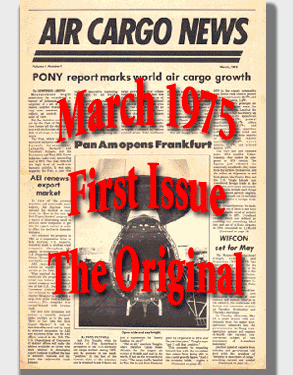
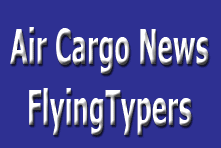
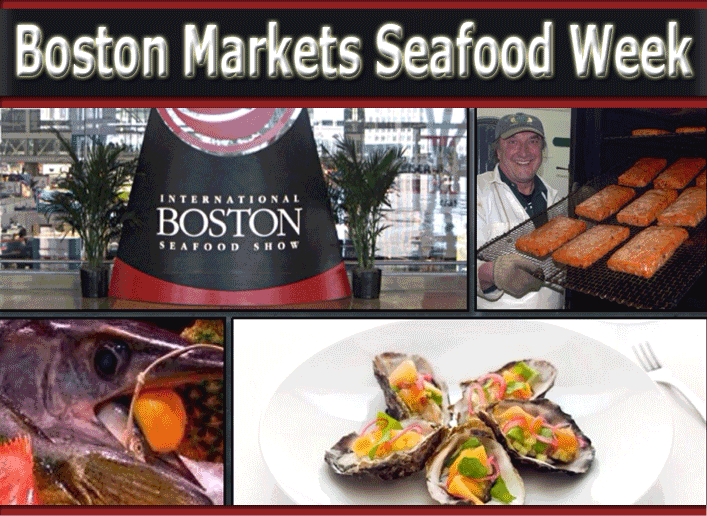
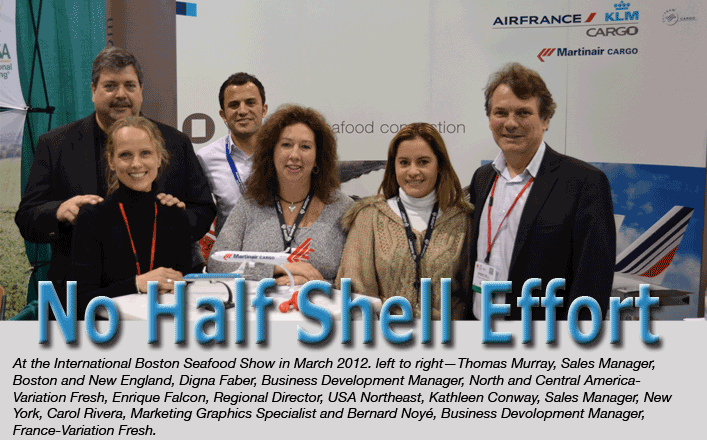
 Seafood
is a substantial part of our global fresh business,
so KLM Air France and Martinair recognize the importance
and participate yearly at The International Boston
Seafood Show,” said Jan Krems, Vice President
The Americas for KLM, Air France, Martinair Cargo
(AF/KL/MP).
Seafood
is a substantial part of our global fresh business,
so KLM Air France and Martinair recognize the importance
and participate yearly at The International Boston
Seafood Show,” said Jan Krems, Vice President
The Americas for KLM, Air France, Martinair Cargo
(AF/KL/MP). 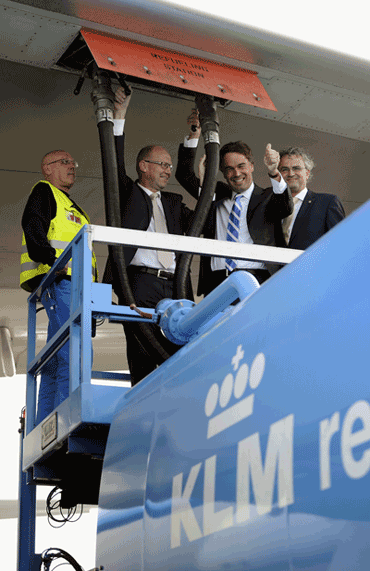

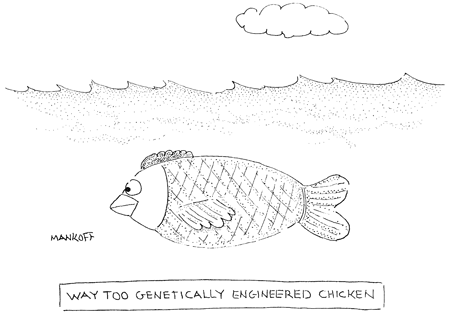
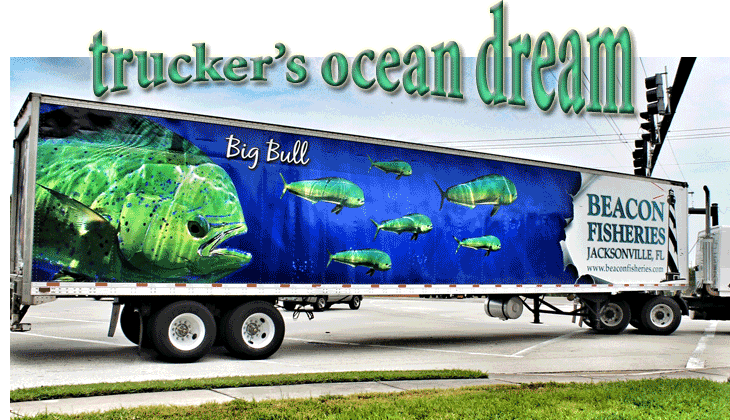
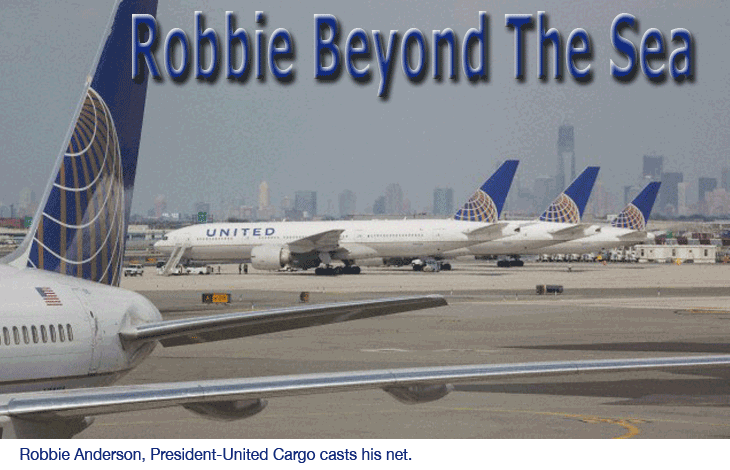
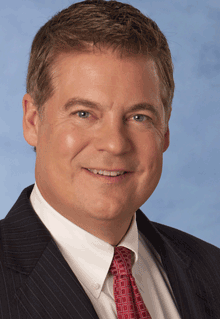 “United
Cargo’s message to the seafood community gathered
in Boston is: we want your business, and we have everything
it takes to provide the specialized service you need.
“United
Cargo’s message to the seafood community gathered
in Boston is: we want your business, and we have everything
it takes to provide the specialized service you need.